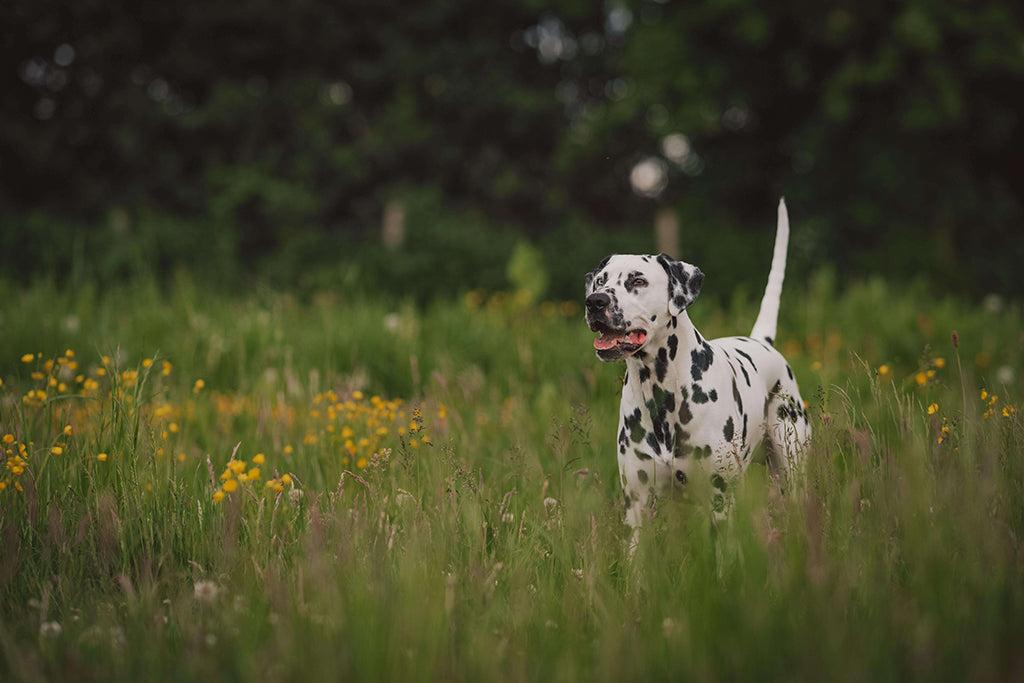If you’re wondering “how can I help my dog poop?”, this blog should help! We’ll find out why dogs get constipated, what the signs are and how to help a dog poop.
- Home/
- Dog/
- Health & Wellness/
- How Can I Help My Dog Poop?
How Can I Help My Dog Poop?

Quick takeaway: Dogs can get constipated and find it hard to poop. We can empathize can’t we, pet parent? We’ve all experienced constipation. It is uncomfortable! We may reach for the prunes or a herbal remedy, but how can we help our dogs out when they get blocked up? What’s a pup’s ticket to relief from constipation?
What Are The Signs Of Constipation In Dogs?
It’s normal for a dog to poop between 2-4 times a day. However, occasionally a dog may not poop for around 24 hours. If your dog has gone less frequently than this, they may be having some bowel trouble.
Signs your dog may be constipated include:
- Not pooping for several days
- Producing hard, pebbly stool
- Straining without resulting in poop
- Whimpering, yowling, or vocalizing whilst attempting to defecate
- Their stool is bloody
- Mucus is present on their stool

What Causes Constipation In Dogs?
There can be a variety of reasons behind a bout of constipation in dogs.
When digestion is functioning normally, our dogs’ waste is full of electrolytes and water as it makes its way through the intestines and colon which is controlled by an automatic muscular motion. The colon absorbs the water, and a stool is released. However, when this process is impaired, the colon keeps absorbing the water which then dries out the stool. As it dries it, the stool becomes harder and then impacted which means it’s incredibly hard to release (or to poop!)
In dogs, the most common reasons for becoming constipated are:
- A lack of fiber in their diet
- A lack of suitable, regular exercise
- A poor diet
- Pica (eating non-digestible items)
- Swallowing too much hair from over self-grooming
- Aging
- Hyperthyroidism
- Prostate enlargement
- Renal problems
- They’re dehydrated
- Pelvic or spinal trauma/injury
- A side effect of medication
- Their anal glands are impaired
- They’re stressed
- They’ve just had surgery
Older dogs are more prone to constipation than younger dogs are, but there isn’t a breed that is more predisposed to general constipation.
How Can I Help My Dog Poop?
Most of the time, occasional constipation can be relieved at home with some help from a loving pet parent. There are a few things you can try to help your dog poop:
Make Sure They’re Getting The Daily Exercise They Need
Your dog may be struggling to poop because they’re being under-exercised. Try taking them for a good walk or run if they’re struggling to poop. If you’re unsure how much daily exercise your dog needs, check out our handy guide below and chat to your vet:

Optimize Their Diet
Help a dog out by boosting their fiber, improving their diet, and sticking to a routine.
Feed them high-quality pet food (preferably a wet dog food for constipated doggos as this increases moisture), and try treating them with small pieces of cucumber, green beans, cooked sweet potato, small pieces of apple without the pips, a teaspoon of coconut oil or some blueberries here or there to help with their fiber levels. Alternatively, you can add one or two of these items to their food bowl at mealtimes.

Does Pumpkin Help Dogs Poop?
Dogs can eat raw, cooked or canned pumpkin, and it is sometimes given to encourage a healthy digestion. Try giving your pup 1 teaspoon per 10lbs of body weight with every meal until they manage to poop.
Other Key Tips to Help Ease Dog Constipation:
- Feed your pup at the same time of day every day to keep their body and digestive system in a regular routine. Make sure your dog has access to clean, fresh water in a sanitary bowl at all times.
- Never give your dog a laxative, stool softener, suppository or enema meant for a human.
- Don’t feed your dog foods known to help humans poop like prunes, without asking your vet or triple checking the food you want to try is safe for your dog.
If your dog still doesn’t successfully poop within 24 hours after you try the above, it’s time to consult with your vet. Untreated constipation can lead to obstipation, making the stool virtually impossible to pass and will require manual removal which comes with a higher veterinarian cost. Get your dog checked over by your vet before this happens. They can prescribe dog-friendly laxatives, provide you with specific advice and locate the root of the problem.
Sources
Author Farner, Vanessa DVM “Dog Constipation Causes And Treatment” Pets Web MD, Feb 10. 2021 https://pets.webmd.com/dogs/dog-constipation-causes-treatment#2
Author Randall, Samantha “How To Make A Dog Poop Quickly” Top Dog Tips, Sep 20. 2021 https://topdogtips.com/how-to-make-a-dog-poop-quickly/
| Related Reads: Dog Health & Daily Care Guides | ||
| Dog Poop: Frequency & Consistency | Unhealthy Dog Poop: Signs & Symptoms | Dog Poop: Color |
| How Often Should Your Dog Poop? A Vet Explains | Unhealthy Dog Poop Chart: 5 Signs | Dog Poop Color – What’s Good & What’s Bad? |
| How to Make a Dog Poop Quickly | Blood in Dog Poop: 12 Possible Causes | Orange Dog Poop: 7 Causes Explained By a Vet |
| How Often Do Puppies Poop? What to Expect | Mucus in Dog Poop: 6 Causes | White Dog Poop: What It Means And When To Worry |
| 8 Causes of Soft Dog Poop | 8 Reasons Your Dog Is Straining to Poop | Black Dog Poop: Causes & What to Do |
| How Can I Help My Dog Poop? | Green Dog Poop: 7 Causes | |
 S
S



